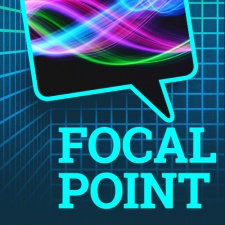We ask our industry panel - the brightest and sharpest VR professionals from around the world - one question about the XR industry, business, technology or trending stories every month.
Question: Blockchain is rapidly gaining momentum as the Next Big ThingTM to hit gaming, with claims that it could revolutionise games, advertising and commerce - particularly in combination with VR/AR. What are your thoughts on the technology and how do you think it could best be applied to immersive media?
Blockchain will allow users to create an all-encompassing profile to carry across platforms.Sam Watts
Sam Watts, Director of Immersive Technologies at Make Real
“Blockchain goes beyond just cryptocurrencies and allows for far greater security and privacy, if implemented correctly. Blockchain will allow users to create an all-encompassing profile to carry across platforms whilst contacts and systems admins will know that they are who they say they are and there’s no spoofing or confusion.
“This could also help reduce trolls and negative online social behaviour since if the profile cannot be fiddled with in any way, bad behaviour sticks and could see barriers to entry to platforms and spaces.
“Of course, this can be taken to the extreme other end of the spectrum and monitor individual citizens behaviour and grant/deny them access to real world services and quality of life needs, like with the system being trialled in China currently. Naughty boy online? Not good enough job? Not good enough citizen? No access to first class for you! Back to the end of the line for the doctors etc…
“In relation to games in VR, then users can create unique items that cannot be copied or duplicated and would have real intrinsic value to them, since they are a one-off digital creation with none other like it. If that’s your sort of thing, making and/or decorating your virtual spaces with priceless collectibles.
“Tied to machine learning, machine vision and AI however, who is going to control the likely influx of photogrammetry / 3D scanned digital representations of real world objects? Brands are going to have to get savvy real quick to ensure they control their digital representations.
“It’s all very exciting and another stage in the evolution of the online space, which is why we’ve signed up to partner with Terra Virtua, which will see Loco Dojo launching alongside the platform later this year.”
The blockchain as the common link between these worlds, providing a layer of trust and persistent identity.Samuel Huber
“There are many possible use of blockchain for VR/AR. As a monetisation solution for VR/AR, we need to keep a track record of who has seen each product placement. The blockchain is one way to do this, keeping a secure record of users’ gaze metrics, while maintaining their privacy.
“But there is another use that is even more interesting. Today, the VR ecosystem is very fragmented, and this is causing compatibility issues between VR worlds: different user identities, different currencies.
"We are thinking of the blockchain as the common link between these worlds, providing a layer of trust and persistent identity, and a first step towards interoperability.”
The ability to protect our digital selves in a way that does not centralise the ownership and allows us to clearly audit where our digital selves are accessed is likely to be a necessity..Simon Benson
Simon Benson, Founder of Realised Realities
"Looking at the technology roadmap, it’s clear that we are rapidly approaching an age where it will be possible to capture a realistic digital model of ourselves via 3D scanning and computer vision, accurately recreate the sound of our voices using voice synthesis technology and recreate our behaviour with advanced AI and machine learning.
“When you add all of this together, it means that one day we could be with our friends in a VR world, but when we log out, our avatar could continue to be present and carry on interacting with our friends just as if we were there. That sounds like a great feature on one hand, as it means that there will be no more dropouts in online games for example and I can always ‘virtually’ chat with my friends even if they are unavailable.
“But it also sounds quite scary, as it could be possible to lose control of my virtual self. For example, some evil corporation could take a copy of it and use it for unintended purposes. This is where Blockchain technology could really come in handy. Having the ability to protect our digital selves in a way that does not centralise the ownership and allows us to clearly audit where our digital selves are accessed is likely to be a necessity.
“Also, I believe that eventually, we will see a unified VR Metavrse, but I don’t think it will be created from a single source, it will more likely be an interwoven collection of applications where you could seamlessly walk from the Facebook Spaces world into the Sansar world for example. To achieve this, Blockchain technology would be essential to keep track of all of our virtual goods, rights and entitlements so each individual application that makes up the Metavrse can accurately represent our Avatars and allow us to access our inventory etc."
The blockchain will be invaluable for tracking virtual content origins and ownership.Adrian Leu
“Blockchain technology will revolutionise every transaction or ownership expression where there’s no overt trust mechanism. Having combined 3D printing with AR over seven years, INITION recognises that new technologies create something bigger when combined; and the blockchain is no exception.
“AR/VR is a strong contender for blockchain applications. Multi-user VR worlds (cue Oasis in Ready Player One) can benefit by allowing the tracing of in-world transactions and content ownership. When the physical and virtual worlds eventually become inseparable through AR wearables, the blockchain will be invaluable for tracking virtual content origins and ownership.
“Although most content is currently localised, there is a strong push towards centralised platforms. Moreover, the next generation of AR devices will be able to virtualise physical content through scanning. If we replace physical objects with modified virtual ones, a blockchain system will be required to trace ownership and provenance.”
When the fever has gone, we will be left with good, strong, clever applications of these technologies.Thomas Bidaux
Thomas Bidaux, CEO at ICO Partners
“Like all trends that are the positioned as the next big thing, it is important to apply some common sense and rational thought before getting overly excited.
“While I truly believe there are very interesting applications for the blockchain and for cryptocurrencies with the games industry, there is at the moment a fever for finding the billion dollar ideas that is very counterproductive. I see a lot of great solutions that are looking for problems to solve, and many concepts that are developed in a vacuum without considering the existing ecosystem where they are supposed to be executed, leading to dead-on-arrival ideas.
“There is also a lot of speculation and greed fueling many of those initiatives emerging from fintech that don’t have any inkling of the current state of the games industry. This will all lead to stark disappointements. But hopefully, when the fever has gone, we will be left with good, strong, clever applications of these technologies.”













